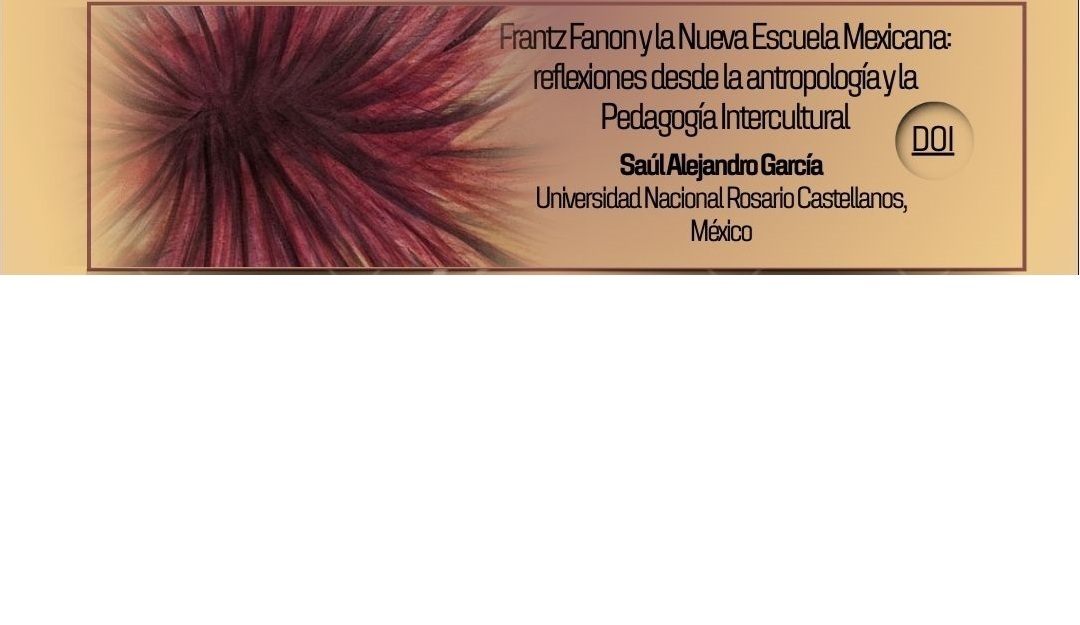Frantz Fanon e a Nova Escola Mexicana: Reflexões da Antropologia e da Pedagogía Intercultural
DOI:
https://doi.org/10.19137/praxiseducativa-2025-290305Palavras-chave:
colonialismo, decolonialidad, educación, pueblos indígenas, Nueva Escuela MexicanaResumo
Resumo
Cem anos após o nascimento de Frantz Fanon, seu legado permeia os estudos decoloniais, criticando o colonialismo e sua consolidação nos sistemas sociais e culturais dos povos oprimidos. Suas obras expõem os mecanismos da colonização e, ao mesmo tempo, estabelecem caminhos alternativos para escapar desse processo e estabelecer nações livres. Com base nesses postulados, este ensaio examina como o processo de dominação colonial e reprodução ideológica se estabeleceu no México por meio dos sistemas educacionais. Ao mesmo tempo, levanta a possibilidade de estabelecer os postulados de Fanon na chamada Escola Novo-Mexicana. Uma série de reflexões é apresentada com base em aspectos antropológicos e educacionais que o México vivenciou em sua história de colonialismo e nas possibilidades decoloniais para a construção de novos projetos civilizatórios no século XXI.
Downloads
Referências
Aguirre Beltrán, G. (1957). El proceso de aculturación. UNAM.
Aguirre Beltrán, G. (1967). Regiones de refugio: El desarrollo de la comunidad y el proceso dominical en mestizo América. Instituto Indigenista Interamericano.
Batalla G. (1987). México profundo. Una civilización negada. México: Grijalbo / SEP-CIESAS.
Bertely, M. (1998). Educación indígena en el siglo XX en México. En P. Latapí (Coord.), Un siglo de educación en México (tomo II, pp. 9-31). Fondo de Cultura Económica.
Caso, A. (1958). Los pueblos indígenas de México. Ediciones Especiales del INI.
Fanon, F. (1952). Piel negra, máscaras blancas. Ediciones Akal.
Fanon, F. (1961). Los condenados de la tierra. Ministerio de Trabajo, Empleo y Previsión Social.
Fanon, F. (1976). Sociología de una revolución. Ediciones Era.
Freire, P. (2005). La pedagogía del oprimido. Siglo XXI editores.
Galeano, E. (2004). Las venas abiertas de América Latina. Siglo XXI Editores.
Gamio, M. (1916). Forjando patria: Pro-nacionalismo. Porrúa Hermanos.
González, P. (1983). Imperialismo y liberación en América Latina. México: Siglo XXI Editores.
Hernández, S. (2018). Educación superior, diversidad cultural e interculturalidad en América Latina. Estudio sobre México. En D. Mato (Coord.), Educación superior, diversidad cultural e interculturalidad en América Latina (pp. 225-248). UNESCO-IESALC-Universidad Nacional de Córdoba.
Maldonado, B. (2010). Los indios en las aulas: Dinámicas de dominación y resistencia en la educación intercultural. UPN.
Mignolo, W. (2007). La idea de América Latina: La herida colonial y la opción decolonial. Barcelona: Gedisa.
Sánchez, G. (27 enero de 2020). Vivir a medio hambre con trajes Gucci y zapatos de cocodrilo: la exótica costumbre de los dandis del Congo. Clarín. https://www.clarin.com/internacional/vivir-medio-hambre-trajes-gucci-zapatos-cocodrilo-exotica-costumbre-dandis-congo-_0_CzVarsXi6.html
Schmelkes, S. (2013). La calidad de la educación y el aprendizaje de los pueblos indígenas. Revista Mexicana de Investigación Educativa.
SEP. (2023). La Nueva Escuela Mexicana (NEM): orientaciones para padres y comunidad en general. https://educacionmediasuperior.sep.gob.mx/work/models/sems/Resource/13634/1/images/030623_La%20Nueva%20Escuela%20Mexicana_orientaciones%20para%20padres%20y%20comunidad%20en%20general_COSFAC.pdf
Vasconcelos, J. (1925). La raza cósmica: Misión de la raza iberoamericana. Agencia Mundial de Librería.
Vasconcelos, J. (1935). Ulises criollo. Botas.
Walsh, C. (2010). Interculturalidad crítica y educación intercultural. Instituto Internacional de Integración del Convenio Andrés Bello.

Publicado
Edição
Seção
Licença
Copyright (c) 2025 Saúl Alejandro Garcia

Este trabalho está licenciado sob uma licença Creative Commons Attribution-NonCommercial-ShareAlike 4.0 International License.
Aviso de direitos autorais
Comitê Editorial Revista Práxis Educativa:
Declaro que sou o autor do artigo intitulado (nome do artigo), que o mesmo é original e de minha autoria e que não foi publicado anteriormente em qualquer outro formato ou meio. Declaro saber que a revista não me cobrará nenhum tipo de taxa em hipótese alguma, nem receberei qualquer tipo de remuneração monetária.
Caso seja aceito para publicação na Práxis Educacional, autorizo a referida revista a publicá-lo digitalmente e a divulgá-lo em suas redes sociais.
Se o trabalho for publicado, aderi à licença Creative Commons denominada "Atribuição - Compartilhamento Não Comercial pela mesma Licença CC BY-NC-SA", por meio da qual é permitido copiar, reproduzir, distribuir, comunicar publicamente o trabalho e gerar trabalhos derivados , desde que o autor original seja citado e reconhecido. Esta licença está em uso desde setembro de 2018. Em 2016 foi aderido ao CC BY NC ND 4.0; e nos anos de 2017 e 2018 (janeiro-agosto) CC BY NC 4.0.
Esta licença CC BY-NC-SA Share Alike não permite, entretanto, o uso comercial da obra. Como autor, a revista poderá estabelecer acordos adicionais para a distribuição não exclusiva da versão do trabalho publicado na revista, permite-me autoarquivar os artigos publicados, na sua versão post-print, em repositórios institucionais, temáticos , páginas web pessoais ou qualquer outro uso relevante. com o reconhecimento de ter sido publicado pela primeira vez nesta revista.
SA Práxis Educacional adere à DORA (Declaração sobre Avaliação de Pesquisa) assinada em São Francisco, Califórnia, em 16 de dezembro de 2012, e à Declaração do México (Declaração Conjunta LATINDEX - REDALYC - CLACSO - IBICT).














_(1)2.png)


3.png)











_(2).png)






2.jpg)









